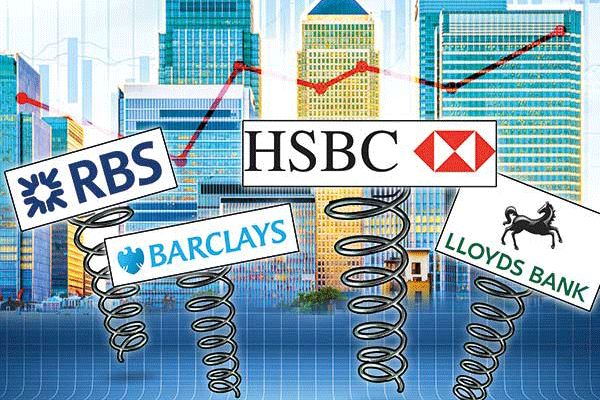Call for banks to suspend dividend payments
Banks need to be able to give as much lending support to viable businesses as possible.
30th March 2020 12:35
by Tom Bailey from interactive investor
Banks need to be able to give as much lending support to viable businesses as possible.

Banks should suspend dividend payments and share buybacks, according to the head of the Bank for International Settlements (BIS).
Writing in the Financial Times over the weekend, Agustin Carstens, the BIS’ general manager, said: “Banks should be part of the solution, not part of the problem.” In order for banks to increase lending capacity, he argued, “we need a global freeze on bank dividends and share buybacks”.
According to Carstens, with large swathes of economies in shutdown, banks need to be able to give as much lending support to viable businesses as possible, providing them “a lifeline to tide them over”. Cash should be used for this purpose, rather than remuneration of shareholders.
Several banks around the world have already heeded this advice, with Goldman Sachs and Morgan Stanley alongside other US banks recently announcing a pause in buybacks until at least the third quarter of the year. In a joint statement, the banks in question said they had paused share buybacks in order to use their capital to “provide maximum support to individuals, small businesses, and the broader economy through lending and other important services”.
Pressure is now mounting on the Bank of England’s new governor, Andrew Bailey, to call on UK banks to do the same. UK banks are expected to hand in £7.5 billion in dividends in the coming weeks.
Share buybacks involve companies buying their own shares as a means to raise their price and provide returns to shareholders. While in the UK the favoured way for firms to give shareholders a lift is through dividend payments, in the US share buybacks are often preferred. Both, however, are a way of giving money to shareholders.
The European Central Bank has also called upon banks to limit buybacks and dividends, with major European banks such as Bank of Ireland, ING, Rabobank and Italy’s UniCredit all agreeing. Not all, however, have heeded the call, with Swiss bank UBS so far sticking to its 2019 dividend policy.
While a pause of dividend payments may be best for the overall health of the economy, cuts to UK bank dividends won’t come as good news for income investors.
According to AJ Bell, UK companies have already cut £4.8 billion. As we previously noted, with less economic activity, most companies are looking at diminished revenues. As a result, investors should expect dividend cuts over the coming year.
Here, we flagged up 12 dividend-paying shares that look vulnerable, as part of our Dividend Danger Zone screen.
This article was originally published in our sister magazine Money Observer, which ceased publication in August 2020.
These articles are provided for information purposes only. Occasionally, an opinion about whether to buy or sell a specific investment may be provided by third parties. The content is not intended to be a personal recommendation to buy or sell any financial instrument or product, or to adopt any investment strategy as it is not provided based on an assessment of your investing knowledge and experience, your financial situation or your investment objectives. The value of your investments, and the income derived from them, may go down as well as up. You may not get back all the money that you invest. The investments referred to in this article may not be suitable for all investors, and if in doubt, an investor should seek advice from a qualified investment adviser.
Full performance can be found on the company or index summary page on the interactive investor website. Simply click on the company's or index name highlighted in the article.